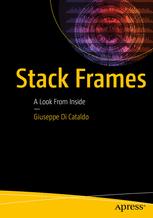

Most ebook files are in PDF format, so you can easily read them using various software such as Foxit Reader or directly on the Google Chrome browser.
Some ebook files are released by publishers in other formats such as .awz, .mobi, .epub, .fb2, etc. You may need to install specific software to read these formats on mobile/PC, such as Calibre.
Please read the tutorial at this link: https://ebookbell.com/faq
We offer FREE conversion to the popular formats you request; however, this may take some time. Therefore, right after payment, please email us, and we will try to provide the service as quickly as possible.
For some exceptional file formats or broken links (if any), please refrain from opening any disputes. Instead, email us first, and we will try to assist within a maximum of 6 hours.
EbookBell Team

5.0
58 reviewsTeaches you exactly how program memory content and organization is vital for computer security, especially Unix-like operating systems. You will learn how it is manipulated to take control of a computer system, as well as the countermeasures that system designers set up to avoid this. Neither a guide for hackers nor an all-out theory book, this book is ideal for anyone studying computer security who wants to learn by doing.
Using a practical approach, you will understand how stack frames relate to hardware and software theory and the various GNU/Linux distributions, before moving on to Base 2, 8 and 16 notations, executables and libraries. Lastly you will go in-depth to understand the intricacies of stack frames. A vital resource for all computer security students and enthusiasts, add Stack Frames: A Look Inside to your library today.
What You Will Learn
A better understanding on how conventions used by compilers work.
Clarify some concepts on libraries and their relationship with executable programs.
Get, or recall, technical skills using compilers, debuggers, and other tools.
Who This Book Is For
The book is suitable for college students with a good knowledge of the C language, who are interested in deepening their study of the content and organization of program memory, namely the activation records of functions, as regards possible implications in computer security. A basic knowledge of both the Assembly language and the UNIX operating system is certainly helpful, as well as some practice with compilers and debuggers; but they are not compulsory.